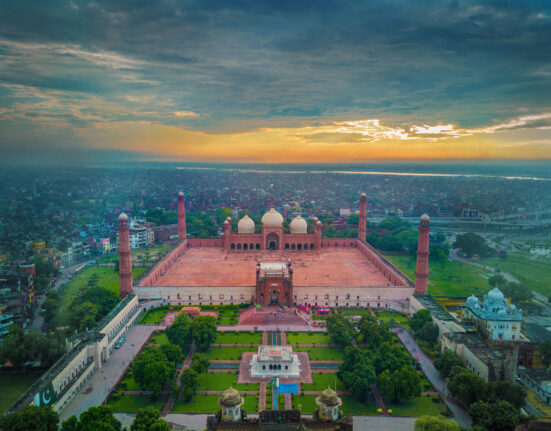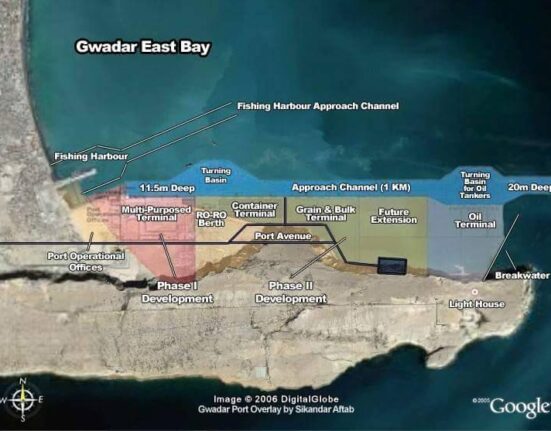The object of the insurgent elements is clearly discernible that insurgency in Balochistan be, somehow, cut off from the rest of the country.
Prof. Sultan Mahmood Niazi
The FC check post in Bolan was raided on May 9, 2021 by the insurgents, killing three militia soldiers and wounding another. It was alarming news enough, but the very next day, the miscreants targeted a patrolling vehicle of the Frontier Corps by detonating an improvised explosive device through remote control, near Tariq Hospital on Sariab Road, Quetta. Two militia personnel were injured in the attack. On Monday night, May 10, 2021, two personnel of law enforcing agency were killed and another was injured when armed men targeted a police vehicle in the Mastung area on Quetta – Karachi National Highway.
The spree of terrorist activities against the law enforcing agencies, including Frontier Corps and Police just during the two days mentioned above is a replay of criminal events happening in the province almost every year before national/religious festivities. People in large numbers travel from the cities to their home towns in other provinces and fall prey to the heinous designs of the armed rebel groups patronized by enemies of Pakistan. Every time, the government vows to catch and punish the perpetrators of such crimes, but, soon such pledges are forgotten and all actions are left confined to the files. The masses at large have to face fresh anguish when another dastardly attack by the insurgents is reported. The desire of peace and economic development in the province just remains a dream.
The incidents in the past show that Bolan Pass which joins Balochistan with Sindh and Punjab and the National Highway between Quetta and Karachi are generally the sites of terrorist attacks. The object of the insurgent elements is clearly discernible that Balochistan be, somehow, cut off from the rest of the country. During the reign of Gen. Parvez Musharaf, Bolan Pass was the hub of the rebellious activities and pickets of Front Corps had to be deployed on all the vantage points along the railway tracks and the road running alongside the tracks in order to ensure safe and smooth traffic. Such arrangements proved to be temporary deterrents against terrorist attacks, but provided no lasting solution to the problem.
The general masses in Balochistan are, by and large, pro – Pakistan loyal citizens. They pray for peaceful conditions in the province, so that the common citizens in the province could par-take the fruits of development and the resultant prosperity. Fresh vows of teaching the miscreants a lesson after every attack on the law enforcing personnel or against the innocent people do little to placate the agonies of the victims.
Use of force seldom offers lasting peace. The indigenous population of the province needs to be taken into confidence. In 1947, prior to the creation of Pakistan as an independent country, Balochistan was affiliated to Pakistan as a result of free and fair expression of trust and belonging on the part of the tribal chiefs and notable tribal elders. That trust and sense of belonging still persist. Only a handful of hired agents are bent on creating trouble. The government must approach the tribal sardars and elders and seek their cooperation in eliminating the evil of anti-Pakistan mischiefs. Do not let the enemy misguide the new generation in Balochistan through anti-Pakistan propaganda, surreptitiously being spread by foreign patrons of insurgents.
At the time of dismemberment of One Unit, the greatest mistake comitted was the repatriation of government employees, in particular the teachers hailing from outside insurgency in Balochistan. The gulf created by the repatriation was filled up by the raw indigenous people who lacked the capabilities, skills and devotion to fulfill their professional obligation. In order to hide their short-comings they encouraged the young students to shun their classes and spend all their energies on agitation against the government. The quality gap between the local and national educational standards naturally created the sense of not being able to compete on merit. Such lack of self-confidence is the key to the existence of insurgency in Balochistan. Similar conditions exist in rural Sind, as well.
Australia is a huge independent country, but the key to harmony and absence of disparity in the country is the frequent flow of the people from one state to another which minimizes the sprouting of cocooned societies. Australia is free from linguistic and cultural divisions because the seeds of ethnicity are not allowed to take roots. A person from New South Wales has no hesitation in going to Perth for better employment or business prospects. Similarly a person from Tasmania has no inhibition against going to Melbourne. There is no reason why the children of Balochistan be deprived of the services of the most capable teachers in the country. There is no reason why they should not get the assurance and self-confidence of being able to compete and win in open competition. The example of Australia is before us. We only need to emulate their example. Let’s weed out the causes which give rise to lack of solidarity and disturbance.
More about NPMC









